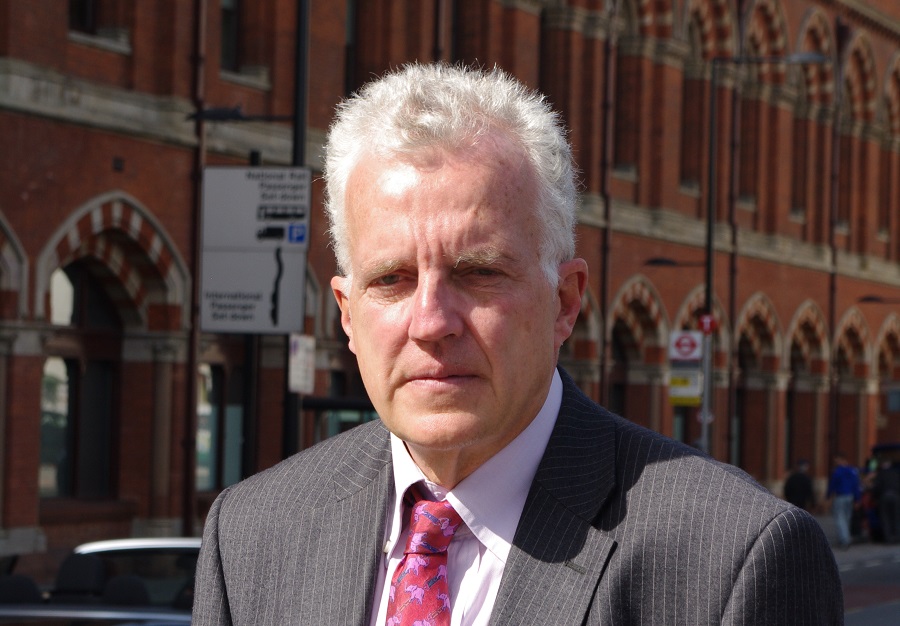It is easy but mistaken to pin all the blame for the forthcoming rail strike on Bob Crow and his frequent call of ‘everybody out’, so reminiscent of Miriam Karlin in the 1960s sitcom the Rag Trade. The management of Network Rail also have a lot to answer for in ensuring that Crow’s cavalier attitude to the people’s transport needs is allowed to prevail.
Remember, thanks to Mrs Thatcher’s legislation on trade unions, every strike now requires a ballot in which a majority must be in favour industrial action before Crow can call his troops out. Ignore for the moment that the ballot was very close and that Network Rail is challenging the validity of the poll and concentrate on the fact that despite the thinness of the case for industrial action, Crow still managed to win the vote.
On the face of it, the RMT’s case is weak. Sure, new workers will no longer be able to join the final salary pension scheme, but that does not affect present staff. Moreover, they are pretty well paid, with signallers on £32,000, three quarters more than a decade ago at privatisation and there is an offer of 3 per cent on the table. Not much of a case for a strike, then.
So how has Crow managed to win the vote? Because of a spectacular own goal by Network Rail whose bosses have shown themselves to be the usual self-serving bunch of fat cats who invariably emerge from former state owned industries ever ready to feather their own nests by paying themselves big bonuses. The chief executive, John Armitt, will receive £112,320, while the deputy chief executive, Iain Coucher, will get £99,840 on top of salaries both already topping £400,000. Of course, on some measures the performance of Network Rail has got better since it took over from failed Railtrack in October 2002. There are fewer broken rails and some costs are being driven down. However, the situation could hardly have got worse and in any case, this is what these executives get paid their basic salary for.
Moreover, on other measures, the performance has not been that impressive. The target on delay minutes was not met, and the company lost nearly a billion pounds, apparently mostly because taxpayers’ cash reached its coffers more slowly than expected. So the executives are rewarding themselves for, at best, a mediocre performance and making sure that their staff, who each received a mere £600 in annual bonus, are in a mood for militancy.
Network Rail is not even a proper risk-taking company. The directors have no shareholders to appease, only a weak bunch of ‘stakeholders’ who meet infrequently and have little real power and therefore cannot argue that they are at risk of losing their jobs for underperforming.
And spare us the argument that it is the ‘remuneration committee’ rather than the directors who decide on the bonuses. Executives of British Airways, formerly a government owned company, but now a genuine capitalist concern, have shown the way by Chief executive Rod Eddington has passed up a £175,000 cash bonus – about a third of his £558,000 basic salary for the year and the Mike Street, operations director, and John Rishton, finance director, also refused to accept cash bonuses – worth around £100,000 each – despite the fact that BA reported profits of £230 million for the year. Why? Because, like Network Rail, the company is going to be seeking massive ‘efficiency savings’ over the next two years and, according to a spokesman, ‘the executive directors thought it inappropriate to take their bonuses.’ In other words, they didn’t want to inflame staff who they may have to lay off in the next two years.
The other party responsible for this chaos is the government. Ministers may condemn the strike and argue that it is nothing to do with us, but it is their failure to take control of the rail industry, despite the fact that £5bn of taxpayers money is going into it this year, that has allowed Network Rail bosses to pay themselves these ridiculous bonuses. If the government controlled Network Rail in the way it used to with British Rail, ministers would simply have banned these superfluous payments.
So when you can’t get your train next week, don’t just think of Bob Crow and his small bunch of troublemakers. Think, instead, of the greedy Network Rail executives and the pusillanimous ministers who try to off-load their responsibility for the railway.
